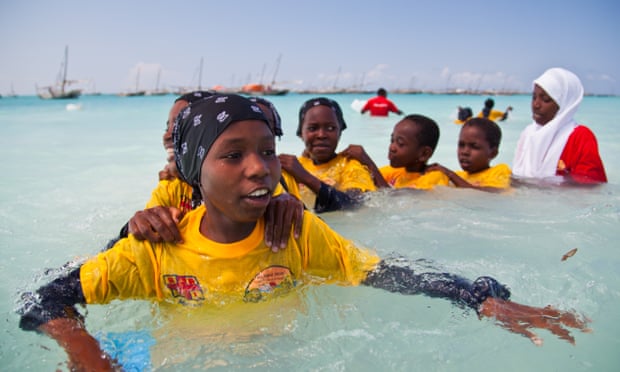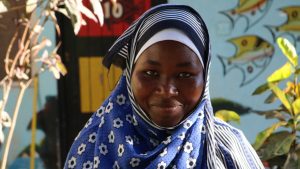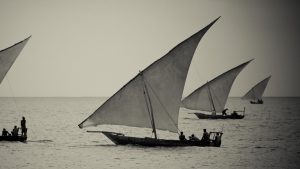Swim to Save a Life: Aquatic Survival project – RNLI
The Background
Drowning is the third leading cause of death by unintentional injury worldwide. Many of the victims are women and girls because in some cultures girls are not encouraged to learn to swim – they are told they have much more important things to do. Yet women and girls are usually the ones who fetch water from open water sources, or have to travel by water.
Zanzibar has many small islands and peoples’ livelihoods are based on the sea. Dhows (small boats) are the main means of transport. The dhows are often overcrowded and they regularly capsize. With no life jackets many drown – mainly the women and girls because they can’t swim.
The Panje Project
The main aim of the Royal National Lifeboats Institution (RNLI) is to prevent death by drowning. They support many projects worldwide, and in particular a small project called the Aquatic Survival Programme run by a local voluntary NGO, the Panje Project (named after a local fish in Zanzibar). A main purpose of the Aquatic Survival Programme is to increase the number of women and girls participating in swimming lessons across Zanzibar, and also to grow the number of female swimming instructors and life savers.
This aspect of the project is based in a fishing village called Nungwi. Here, some girls have to cross the sea every day to get clean water. Women and girls also travel between the islands working as seaweed farmers. At the outset there had to be long discussions with community leaders. They needed assurances that if women and girls were going to get into the sea it had to be without compromising their cultural and religious beliefs – that meant that their bodies and hair had to be covered. A specially-designed swim uniform was developed – the burkini.
 Community leaders now readily agreed to their women and girls having swimming lessons. It is now hoped that the project can be rolled out more widely in Zanzibar and that more communities can be persuaded to allow this to happen.
Community leaders now readily agreed to their women and girls having swimming lessons. It is now hoped that the project can be rolled out more widely in Zanzibar and that more communities can be persuaded to allow this to happen.
Raising the funds
Funds were needed to buy the burkinis and other equipment, as well as to cover the cost of training the instructors and life savers. SI Stafford’s fundraising efforts raised £1500, and in addition Walton High School, a local Academy, raised over £800 after the students heard a presentation about the project.
How the funds have been used
8 new female teachers have been trained
32 women and girls have learned swimming, aquatic survival and drowning prevention techniques in a programme of 15 90-minute lessons. Learning to swim in the ocean, in rural locations, adds to the complexity of this project. A local swimming teacher in Nangwi Village
A local swimming teacher in Nangwi Village
For more information and some wonderful photographs of the swimming project, go to the National Geographic report.
We now have direct contact with the Panje Project and they are going to keep us informed of the progress of the women and girls involved.


